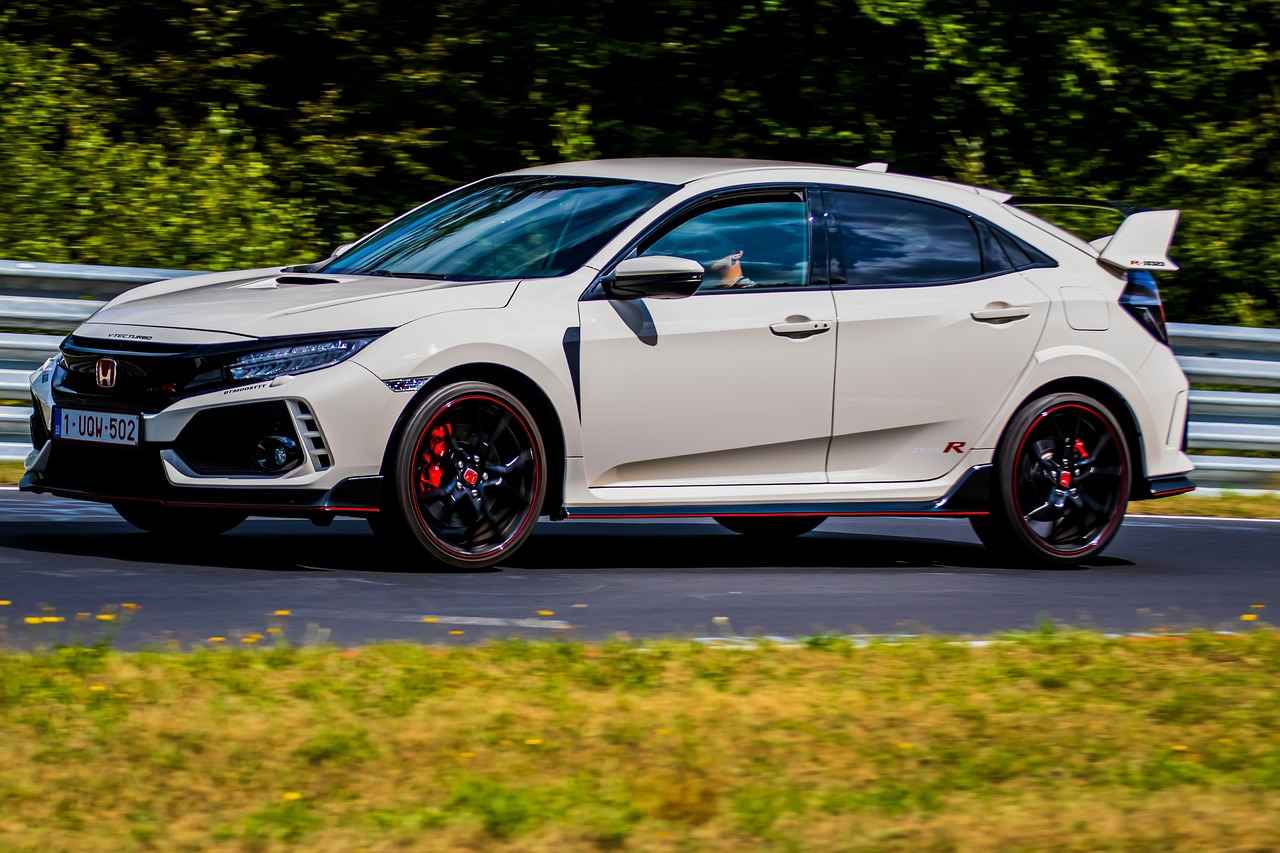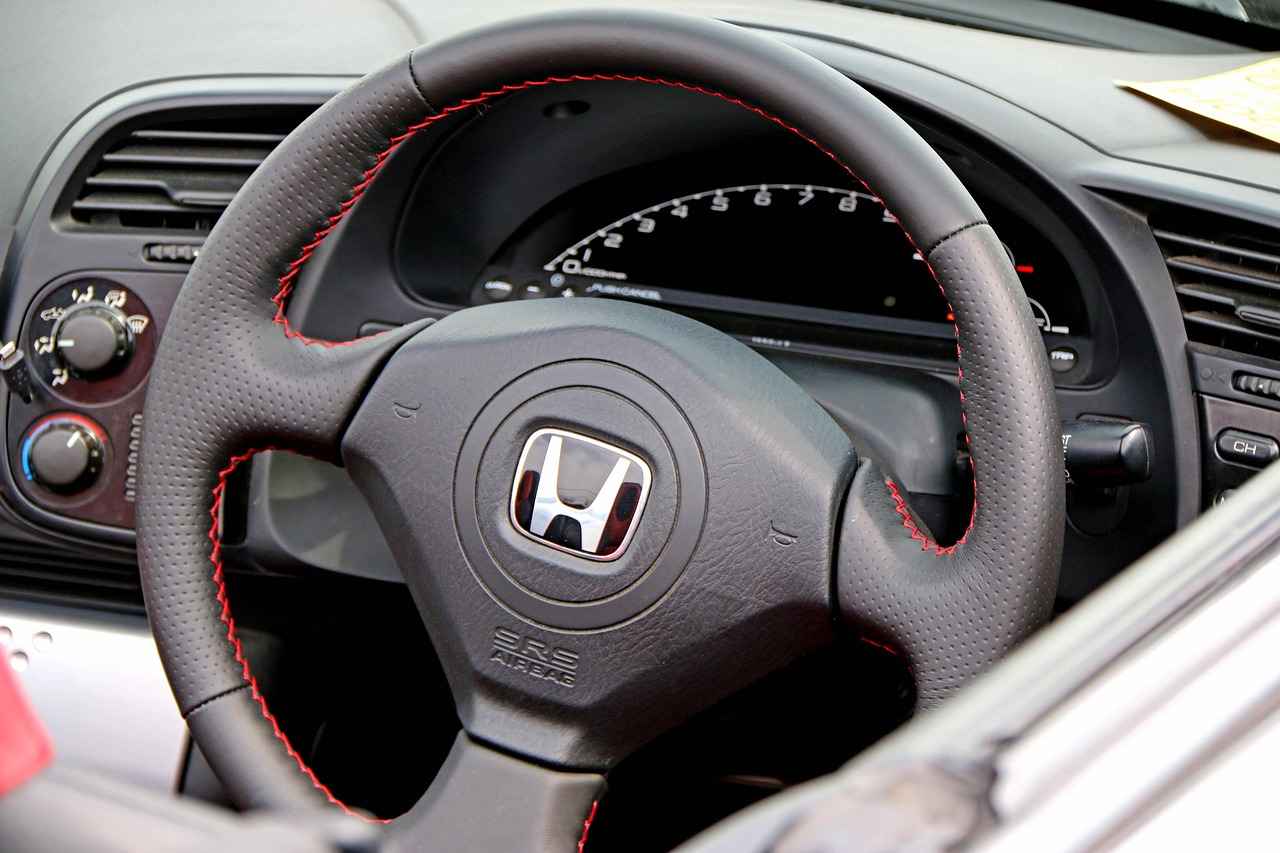The question of whether the 2018 Honda Accord Touring 2.0T requires premium gasoline is a common concern among potential buyers and current owners alike. This article aims to provide a comprehensive overview of the vehicle’s fuel requirements, examining engine specifications, manufacturer recommendations, and the broader implications of fuel choice on performance and efficiency.
The 2018 Honda Accord Touring 2.0T is equipped with a turbocharged 2.0-liter inline-4 engine that produces 252 horsepower and 273 lb-ft of torque. This engine is designed for a balance of power and efficiency, making it crucial to understand its fuel requirements for optimal performance.
According to Honda, the recommended fuel for the Accord Touring 2.0T is 91 octane or higher. While using premium gasoline is suggested for achieving the best performance, drivers can use regular gasoline without immediate adverse effects, though it may not deliver the same level of efficiency.
Using premium gasoline can enhance the engine’s performance, providing better acceleration and responsiveness. The higher octane rating allows for more aggressive tuning of the engine’s ignition timing, which can result in improved power delivery. However, for daily driving conditions, the difference may be minimal.
- Improved Engine Cleanliness: Premium fuel often contains detergents that help keep the engine clean.
- Reduced Knocking: Higher octane fuel can prevent engine knocking, which is beneficial for long-term engine health.
- Enhanced Fuel Efficiency: While results may vary, premium gasoline can lead to better mileage under certain driving conditions.
The primary drawback of using premium gasoline is the increased cost. Premium fuel typically costs more per gallon than regular gasoline, which can add up significantly over time, especially for drivers who frequently fill up their tanks.
While using regular gasoline in the 2018 Honda Accord Touring 2.0T may not cause immediate damage, it could lead to reduced performance and fuel efficiency over time. Drivers may notice less power and responsiveness, particularly when accelerating or driving under load.
The type of gasoline used can significantly influence fuel efficiency. Premium fuel, with its higher octane rating, often provides better mileage. However, the actual difference in fuel economy can vary based on driving habits and conditions, making it essential to consider personal driving patterns.
Automotive experts generally agree that while premium gasoline is recommended for the best performance, using regular fuel occasionally is acceptable without significant adverse effects. Many recommend that drivers assess their own driving needs and habits when making fuel choices.
Determining whether the additional cost of premium gasoline is justified depends on individual driving habits and the importance placed on performance and engine longevity. For those who prioritize maximum performance, premium fuel may be worth the investment.
A prevalent misconception is that premium gasoline is always necessary for turbocharged engines. While higher octane fuel can enhance performance, understanding the specific requirements of the 2018 Honda Accord Touring 2.0T is crucial for making informed decisions.
User experiences vary widely. Some drivers swear by premium fuel for their Accord, citing improved performance and engine health, while others find that regular gasoline meets their needs without noticeable differences. Personal preference plays a significant role in these choices.
Choosing the right fuel type can have long-term implications for engine health, vehicle performance, and overall ownership costs. Understanding the impact of fuel choices is vital for Honda Accord owners to ensure their vehicle runs optimally over time.

What is the Engine Specification of the 2018 Honda Accord Touring 2.0T?
The 2018 Honda Accord Touring 2.0T is equipped with a sophisticated turbocharged 2.0-liter inline-4 engine, which is designed to deliver an exceptional balance of power and efficiency. This engine is a key component of the Accord’s appeal, offering both spirited performance and commendable fuel economy. Understanding the engine specifications is essential for any potential buyer or current owner, as it directly impacts driving experience and fuel requirements.
The heart of the Accord Touring 2.0T is its turbocharged 2.0-liter inline-4 engine. This advanced engine produces an impressive 252 horsepower and 273 lb-ft of torque, allowing for a dynamic driving experience. The turbocharging technology enhances power delivery, ensuring that acceleration is both responsive and smooth. With this engine, the Accord can go from 0 to 60 mph in just over six seconds, making it competitive in its class.
The inline-4 configuration is not only efficient but also lightweight, contributing to the vehicle’s overall agility. The turbocharger allows for maximum power output without sacrificing fuel efficiency. In fact, the Accord Touring 2.0T achieves an estimated 22 mpg in the city and 32 mpg on the highway, making it an economical choice for both city and long-distance driving.
Honda recommends using 91 octane or higher fuel for the best performance from the 2018 Accord Touring 2.0T. While this premium gasoline is optimal for maximizing engine performance, the vehicle can operate on regular gasoline without severe repercussions. However, it is important to note that using lower octane fuel can lead to decreased performance and efficiency over time.
- Enhanced Performance: Premium gasoline can improve engine responsiveness and acceleration.
- Improved Fuel Efficiency: Higher octane fuel may lead to better mileage, especially under heavy acceleration.
- Cleaner Engine: Premium fuel can help keep the engine cleaner, reducing deposits that can affect performance.
The main drawback of using premium gasoline is the increased cost. Premium fuel typically costs more per gallon than regular gasoline, which can add up over time, especially for drivers who frequently fill up their tanks. It’s essential for drivers to weigh the potential benefits against the additional expenses.
While using regular gasoline may not cause immediate damage to the engine, it can lead to reduced performance and efficiency. Over time, the engine may not perform as well as it would with premium fuel, potentially leading to higher long-term ownership costs due to decreased fuel economy.
The type of gasoline used can significantly influence fuel efficiency. Premium gasoline, with its higher octane rating, is designed to resist knocking and can allow the engine to operate more efficiently under load. However, results can vary based on individual driving habits and conditions.
Automotive experts generally agree that while premium gasoline is recommended for optimal performance, using regular fuel occasionally is acceptable without significant adverse effects. It is crucial for drivers to understand their driving patterns and fuel choices to make informed decisions.
Determining whether the additional cost of premium gasoline is justified depends on individual driving habits and the importance placed on performance and engine longevity. For those who prioritize performance, the investment in premium fuel may be worthwhile.
Many drivers mistakenly believe that premium gasoline is always necessary for turbocharged engines. In reality, understanding the specific requirements of the vehicle is crucial for making informed fuel choices.
User experiences vary, with some drivers swearing by premium fuel for their Accord, while others find that regular gasoline meets their needs without noticeable differences in performance. It’s essential for each driver to assess their experience and preferences.
Choosing the right fuel type can have significant long-term implications for engine health and vehicle performance. Owners should consider both immediate and future costs when deciding on fuel options.

What Fuel Type Does the Manufacturer Recommend?
The 2018 Honda Accord Touring 2.0T is a remarkable vehicle that combines advanced engineering with a focus on performance and efficiency. One of the key considerations for any vehicle owner is the type of fuel to use, which can significantly impact both performance and long-term engine health. In this section, we will delve into the manufacturer’s fuel recommendations for the 2018 Accord Touring 2.0T, exploring the implications of using different fuel types.
Honda specifically recommends using 91 octane or higher fuel for the 2018 Accord Touring 2.0T. This recommendation is rooted in the vehicle’s turbocharged engine design, which is optimized for higher octane fuel to achieve its best performance. The use of premium fuel can enhance engine responsiveness and overall driving experience, providing a more exhilarating ride.
However, it’s important to note that while premium fuel is recommended, regular gasoline (typically 87 octane) can be used without causing severe repercussions. This flexibility offers drivers a choice, allowing them to weigh the benefits of premium fuel against the cost implications. Many drivers may find that using regular gasoline does not result in noticeable performance issues for everyday driving scenarios.
Using premium gasoline can lead to better acceleration and improved engine responsiveness. The higher octane rating helps prevent engine knocking, which can occur when the air-fuel mixture detonates prematurely. This can be particularly beneficial during high-performance driving conditions. However, for typical daily commutes, the performance enhancement may not be as pronounced, leading some drivers to opt for regular fuel.
- Improved Engine Cleanliness: Premium gasoline often contains detergents that help keep the engine clean, reducing carbon build-up.
- Reduced Knocking: The higher octane rating minimizes the risk of knocking, which can lead to engine damage over time.
- Potential for Better Fuel Efficiency: Some drivers report improved mileage with premium fuel, although results can vary based on driving conditions.
The primary drawback of using premium gasoline is the increased cost. Premium fuel can be significantly more expensive than regular gasoline, which can add up over time, especially for drivers who frequently fill up their tanks. This cost consideration is crucial for those who drive their vehicles regularly.
While using regular gasoline in the 2018 Honda Accord Touring 2.0T may not cause immediate damage, it could lead to reduced performance and fuel efficiency in the long run. Drivers might experience less power during acceleration and overall diminished driving experience. It’s essential to monitor the vehicle’s performance if opting for regular fuel.
The type of gasoline used can significantly influence fuel efficiency. Premium fuel, with its higher octane rating, often provides better mileage, although individual results can vary based on driving habits and conditions. Some drivers may find that the additional cost of premium fuel is justified by the potential for improved fuel economy.
Automotive experts generally agree that while premium gasoline is recommended for optimal performance, using regular fuel occasionally is acceptable without significant adverse effects. It’s crucial for drivers to assess their own driving patterns and performance needs when deciding which fuel to use.
Determining whether the additional cost of premium gasoline is justified depends on individual driving habits, vehicle usage, and the importance placed on performance and engine longevity. For performance enthusiasts, the benefits of premium fuel may be clear, while casual drivers may find regular gasoline sufficient.
Many drivers believe that premium gasoline is always necessary for turbocharged engines, but this is a misconception. Understanding the specific fuel requirements of the vehicle is crucial for making informed decisions about fuel choices.
User experiences can vary widely; some drivers swear by premium fuel for their Accord, while others find that regular gasoline meets their needs without noticeable differences in performance. This variability highlights the importance of personal preference and driving style in fuel choice.
Choosing the right fuel type can have long-term implications for engine health, vehicle performance, and overall ownership costs. Honda Accord owners should consider these factors when deciding which fuel to use, ensuring they make an informed decision that aligns with their driving needs.

How Does Premium Gasoline Affect Engine Performance?
The performance of an engine can be significantly influenced by the type of gasoline used. In the case of the 2018 Honda Accord Touring 2.0T, which features a turbocharged engine, the choice between regular and premium gasoline can lead to varying outcomes in terms of performance and efficiency.
- Enhanced Acceleration: Premium gasoline, typically with an octane rating of 91 or higher, can provide better acceleration. This is due to its ability to withstand higher compression before igniting, which is crucial for turbocharged engines.
- Improved Responsiveness: Drivers may notice a more responsive throttle, allowing for quicker reactions when accelerating from a stop or during overtaking maneuvers.
- Engine Cleanliness: Premium gasoline often contains detergents that help keep the engine cleaner, reducing deposits that can affect performance over time.
- Reduced Engine Knock: Using higher octane fuel can reduce knocking, a condition where fuel ignites prematurely, which can lead to engine damage if not addressed.
While premium gasoline can enhance performance, the difference may not be significant for everyday driving. Many drivers may find that regular gasoline suffices for their daily commutes, especially in typical driving conditions where high performance is not always necessary. The enhanced benefits of premium fuel may be more noticeable during high-stress driving situations, such as highway merging or heavy acceleration.
The turbocharged engine in the 2018 Honda Accord Touring 2.0T is designed to take advantage of the higher octane rating of premium gasoline. This design allows for greater power output and efficiency, making it beneficial to use premium fuel for optimal performance. However, Honda engineers have designed the engine to operate on regular gasoline as well, meaning that while performance may dip slightly, the vehicle will still function without severe repercussions.
Automotive experts generally advocate for using premium gasoline in vehicles designed for it, like the Accord’s turbocharged engine. However, they also acknowledge that using regular gasoline occasionally will not cause immediate harm. The key is to consider your driving habits and whether the enhanced performance of premium gasoline aligns with your needs.
In addition to immediate performance enhancements, long-term benefits of using premium gasoline can include:
- Improved Fuel Efficiency: Premium fuel can lead to better mileage, particularly in vehicles designed for it, potentially offsetting the higher cost.
- Extended Engine Life: Keeping the engine clean and reducing knocking can contribute to overall engine longevity, which is a significant consideration for vehicle owners.
Ultimately, the choice between regular and premium gasoline should be based on individual driving preferences and patterns. For those who prioritize performance and have a driving style that demands it, premium gasoline may be worth the investment. For others, particularly those who drive primarily in urban settings with less demand for high performance, regular gasoline may be perfectly adequate.
In conclusion, while using premium gasoline can enhance the engine’s performance of the 2018 Honda Accord Touring 2.0T, the significance of this enhancement varies by driving conditions and personal preferences. Understanding your vehicle’s requirements and your driving habits will guide you in making the best choice for your fuel needs.

What Are the Benefits of Using Premium Gasoline?
When it comes to fuel options for your vehicle, understanding the benefits of using premium gasoline can significantly impact your driving experience and vehicle longevity. In this section, we will delve into the advantages of premium fuel, particularly for high-performance engines like the one found in the 2018 Honda Accord Touring 2.0T.
- Improved Engine Cleanliness: Premium gasoline often contains detergents and additives that help keep your engine clean. This is particularly important for turbocharged engines, where carbon buildup can lead to decreased performance over time.
- Reduced Engine Knocking: Higher octane ratings in premium gasoline can reduce the likelihood of engine knocking. Knocking occurs when fuel ignites prematurely in the engine, which can cause damage over time. Using premium fuel minimizes this risk, allowing for smoother engine operation.
- Enhanced Fuel Efficiency: Premium gasoline can lead to better fuel efficiency, particularly in vehicles designed to take advantage of its higher octane levels. This means you could potentially travel farther on a gallon of fuel, saving you money in the long run.
- Optimal Performance: For drivers who prioritize performance, premium gasoline can provide improved acceleration and responsiveness. This is especially noticeable in sporty driving conditions or during highway merging.
- Long-Term Engine Health: Using premium fuel can contribute to the long-term health of your vehicle’s engine. Cleaner combustion and reduced knocking can result in fewer repairs and maintenance issues down the line.
While the benefits of premium gasoline are clear, it’s important to consider the specific needs of your vehicle. The 2018 Honda Accord Touring 2.0T is designed to perform optimally with 91 octane or higher fuel. However, drivers may wonder whether the additional cost is justified.
Regular gasoline typically has an octane rating of 87, which is sufficient for many vehicles. However, for high-performance engines, using regular fuel can lead to less efficient combustion and potential performance issues. The difference in the driving experience can be significant, especially under heavy acceleration or when carrying heavy loads.
While premium gasoline offers numerous benefits, the most significant drawback is the cost. Premium fuel can be up to 20-30 cents more per gallon than regular gasoline. For drivers who frequently fill up their tanks, this can add up over time. However, many owners of high-performance vehicles, including the Honda Accord Touring 2.0T, argue that the benefits outweigh the costs.
Automotive experts generally recommend using premium gasoline for vehicles that specify it in their owner’s manual. They emphasize that while using regular gasoline occasionally may not cause immediate harm, consistently using the recommended fuel type can lead to better performance and longevity.
User experiences vary widely. Some drivers report noticeable improvements in performance and fuel economy when switching to premium gasoline, while others feel that regular fuel meets their needs adequately. It’s essential to consider your driving habits and preferences when making this decision.
In summary, the benefits of using premium gasoline extend beyond mere performance enhancements. Improved engine cleanliness, reduced knocking, and enhanced fuel efficiency can contribute to the long-term health of your vehicle. As a Honda Accord owner, weighing these benefits against the cost of premium fuel will help you make an informed decision that best suits your driving needs.

Are There Any Drawbacks to Using Premium Gasoline?
When considering the use of premium gasoline, it is essential to weigh the benefits against the potential drawbacks. One of the most significant disadvantages is the increased cost associated with purchasing premium fuel. This expense can accumulate rapidly, particularly for drivers who frequently fill their tanks. Let’s delve deeper into the implications of using premium gasoline.
The price of premium gasoline is typically higher than that of regular gasoline, often by 20 to 50 cents per gallon or more, depending on the region. For drivers who fill up their tanks regularly, this can lead to substantial additional costs over time. For example, if a driver fills up once a week with a 15-gallon tank, the extra cost could easily exceed $300 annually. This financial burden can be particularly concerning for those on a tight budget.
While premium gasoline can offer benefits such as improved engine performance and efficiency, the question remains: is it worth the extra expense? For some drivers, the enhanced acceleration and responsiveness may justify the cost, especially for those who prioritize performance. However, for everyday driving, the difference may be negligible, leading many to wonder if they are spending more than necessary.
In addition to the immediate costs, using premium gasoline consistently can have long-term financial implications. While some argue that premium fuel can lead to better fuel efficiency and lower maintenance costs over time, others contend that the initial savings from using regular gasoline can outweigh these potential benefits. It’s crucial for drivers to analyze their driving habits and vehicle needs to make an informed decision.
For those who are hesitant to commit to premium gasoline, there are alternatives. Many vehicles, including the 2018 Honda Accord Touring 2.0T, can run on regular gasoline without immediate damage. While this may lead to slight reductions in performance and efficiency, it can significantly decrease fuel expenses. Drivers should consider their typical driving conditions and personal preferences when deciding on fuel type.
Opinions among drivers vary widely. Some swear by premium gasoline, believing it enhances their vehicle’s performance and longevity. Others find that regular gasoline meets their needs without noticeable differences. Conducting informal surveys or reading reviews on automotive forums can provide insights into how fellow drivers feel about their fuel choices.
Automotive experts generally agree that while premium gasoline is recommended for optimal performance, it is not always necessary. Many suggest that drivers should follow the manufacturer’s recommendations while considering their driving habits and the specific requirements of their vehicle. Consulting with a trusted mechanic can also provide personalized advice tailored to individual needs.
In conclusion, the decision to use premium gasoline involves careful consideration of both the financial implications and the potential benefits. While the increased cost is a significant drawback, understanding the nuances of fuel choice can help drivers make informed decisions that align with their driving habits and financial goals.

What Happens If You Use Regular Gasoline Instead?
The choice of fuel can significantly impact the performance and longevity of your vehicle, particularly for models like the 2018 Honda Accord Touring 2.0T. Understanding the implications of using regular gasoline instead of premium fuel is crucial for owners who want to maintain their car’s efficiency and performance.
When it comes to the 2018 Honda Accord Touring 2.0T, using regular gasoline may not result in immediate damage to the engine. However, it can lead to several long-term consequences that are important to consider. Here are some key points to keep in mind:
- Reduced Engine Performance: The turbocharged engine in the Accord is designed to operate optimally with higher octane fuel. Using regular gasoline can lead to a decrease in power output, resulting in less responsive acceleration.
- Lower Fuel Efficiency: Regular gasoline typically has a lower octane rating, which can lead to knocking or pinging in the engine. This knocking can cause the engine control unit (ECU) to adjust the timing, which may reduce overall fuel efficiency.
- Long-Term Engine Health: While you may not notice immediate issues, consistently using regular gasoline can contribute to carbon buildup and other deposits over time. This can affect engine cleanliness and potentially lead to costly repairs down the line.
- Impact on Resale Value: If you plan to sell your Accord in the future, using the recommended fuel type can help maintain its value. A well-maintained engine that has been run on premium fuel may appeal more to potential buyers.
It’s important to note that while the manufacturer recommends using 91 octane or higher for optimal performance, many drivers have reported satisfactory experiences using regular gasoline. However, the trade-offs in performance and efficiency should be carefully considered.
Mixing regular and premium gasoline is a common practice among drivers. While it is technically safe to do so, it is advisable to use premium fuel consistently for the best performance. Mixing fuels can dilute the benefits of premium gasoline, leading to inconsistent performance and fuel efficiency.
Automotive experts generally agree that while the 2018 Honda Accord Touring 2.0T can tolerate regular gasoline in a pinch, it is not ideal for long-term use. Experts emphasize that using the recommended premium fuel can help ensure optimal performance, fuel efficiency, and engine health.
Using premium gasoline does come with a higher price tag. However, the potential savings in fuel efficiency and engine maintenance can offset these costs over time. Consider your driving habits and how often you fill up to determine if the investment in premium fuel is worth it for you.
In summary, while using regular gasoline in the 2018 Honda Accord Touring 2.0T may not cause immediate harm, it can lead to reduced performance and efficiency over time. For those who prioritize their vehicle’s performance and longevity, adhering to the manufacturer’s fuel recommendations is the best course of action.

How Is Fuel Efficiency Impacted by Gasoline Type?
Fuel efficiency is a crucial aspect for any vehicle owner, particularly for those who prioritize both performance and cost-effectiveness. Understanding how gasoline type influences fuel efficiency can help drivers make informed decisions. In this section, we will delve into the impact of different gasoline types on fuel efficiency, focusing particularly on the 2018 Honda Accord Touring 2.0T.
The octane rating of gasoline indicates its ability to resist knocking during combustion. Higher octane fuels, such as premium gasoline, typically offer better performance in high-compression engines. For the 2018 Honda Accord Touring 2.0T, which features a turbocharged engine, using premium fuel can enhance fuel efficiency by allowing the engine to operate at its optimal performance level. This can result in improved mileage, especially under demanding driving conditions.
Fuel efficiency can vary significantly based on driving conditions. In city driving, where frequent stops and starts are common, the difference in mileage between regular and premium gasoline may be less noticeable. However, during highway driving, where the engine can run more efficiently, premium gasoline may yield better fuel economy. Factors such as speed, load, and driving habits also play critical roles in determining overall fuel efficiency.
Many drivers report that using premium gasoline results in improved mileage, but the actual gains can vary. Studies have shown that while some drivers experience a noticeable increase in fuel efficiency, others may find the differences negligible. It’s essential to consider personal driving patterns and how often the vehicle is driven under conditions that would benefit from higher octane fuel.
Automotive experts generally advise that while premium gasoline is not strictly necessary for all vehicles, it can provide benefits for those designed to utilize it. For the Honda Accord Touring 2.0T, using 91 octane or higher can help maintain engine performance and efficiency. However, experts also note that using regular gasoline occasionally will not cause immediate harm, as long as the vehicle is not pushed to its limits consistently.
The cost of premium gasoline can be a significant factor for many drivers. While some may find that the improved fuel efficiency offsets the price difference, others may not see enough of a benefit to justify the extra expense. It’s important for drivers to evaluate their driving habits and consider how often they would truly benefit from the advantages of premium fuel.
Choosing the right fuel type can have lasting implications for the health of an engine. Regular use of premium gasoline can help keep the engine cleaner and reduce the risk of knocking, which can lead to long-term engine damage. Conversely, consistently using lower octane fuel in a vehicle designed for premium could lead to decreased performance and fuel efficiency over time.
In summary, the type of gasoline used can significantly impact fuel efficiency, especially in vehicles like the 2018 Honda Accord Touring 2.0T. Understanding the relationship between octane ratings, driving conditions, and overall vehicle performance is essential for making informed decisions about fuel choices.

What Do Experts Say About Fuel Choices for This Model?
The choice of fuel for your 2018 Honda Accord Touring 2.0T is an important consideration for both performance and efficiency. Understanding what automotive experts recommend can help you make informed decisions about your vehicle’s fuel needs.
Automotive experts generally agree that using premium gasoline is advisable for the 2018 Honda Accord Touring 2.0T to achieve optimal performance. This model features a turbocharged 2.0-liter inline-4 engine, which is engineered to operate efficiently with higher octane fuel. The manufacturer recommends using fuel with an octane rating of 91 or higher, as this can enhance engine performance, improve acceleration, and ensure smoother operation.
However, it is important to note that using regular gasoline, which typically has an octane rating of 87, is acceptable in certain circumstances. Experts suggest that occasional use of regular fuel will not cause immediate damage to the engine. In fact, many drivers report that their vehicles perform adequately when using regular gasoline on a temporary basis. This flexibility allows owners to manage fuel costs without significant risks to their engine’s health.
In terms of engine performance, premium gasoline can provide benefits such as:
- Enhanced Acceleration: Higher octane ratings can lead to improved throttle response, allowing for quicker acceleration.
- Reduced Engine Knock: Premium fuel helps minimize knocking, which can occur in high-compression engines.
- Improved Fuel Efficiency: Although results can vary, premium gasoline often leads to better mileage due to its formulation.
Despite these advantages, experts caution that the benefits of premium gasoline may not be significant for everyday driving conditions. For many drivers, the difference in performance may be negligible, especially in normal city or highway driving scenarios. As a result, some automotive analysts suggest that if you are not pushing the engine to its limits, using regular gasoline occasionally is a viable option.
Another factor to consider is the cost associated with premium gasoline. While it may enhance performance, the price difference can add up over time, making it essential to weigh the potential benefits against the increased fuel expenses. Drivers who prioritize performance and longevity may find the extra cost worthwhile, while others may prefer to save money by using regular fuel.
Moreover, experts emphasize the importance of understanding your driving habits. If you frequently engage in spirited driving or towing, premium gasoline may be a better choice to ensure the engine operates at its best. Conversely, if your driving is mostly composed of short trips and moderate speeds, regular gasoline can suffice without compromising the vehicle’s integrity.
In conclusion, the consensus among automotive experts is that while premium gasoline is recommended for the best performance of the 2018 Honda Accord Touring 2.0T, using regular fuel on occasion is acceptable. It is crucial for drivers to consider their individual driving needs, budget, and the specific requirements of their vehicle. Ultimately, informed fuel choices can lead to a balance between performance and cost-effectiveness, ensuring that your Honda Accord continues to deliver a dependable driving experience.

Is It Worth the Extra Cost for Premium Gasoline?
When considering whether to invest in premium gasoline for your vehicle, particularly for the 2018 Honda Accord Touring 2.0T, it’s essential to evaluate various factors that may influence your decision. The cost of premium gasoline can be significantly higher than regular fuel, leading many drivers to question if the benefits truly justify the expense.
Your driving habits play a crucial role in determining if premium gasoline is worth the extra cost. For instance, if you frequently engage in high-performance driving or often travel in hilly terrains, the advantages of premium gasoline, such as improved acceleration and responsiveness, may be more pronounced. Conversely, if your driving is primarily limited to city commutes at moderate speeds, the benefits may not be as noticeable.
The usage of your vehicle also impacts the justification for premium gasoline. For those who use their Honda Accord for long-distance travel or towing, the enhanced engine performance and efficiency offered by premium fuel can be beneficial. In contrast, occasional drivers or those who primarily use their vehicle for short trips may find that the cost does not provide a significant return on investment.
One of the primary considerations for using premium gasoline is its potential impact on engine performance and longevity. Premium fuel can help maintain engine cleanliness and reduce knocking, which may lead to a longer lifespan for your engine. If you prioritize engine health and are willing to invest in premium fuel, it can be a wise choice.
| Fuel Type | Average Cost per Gallon | Potential Mileage Improvement |
|---|---|---|
| Regular Gasoline | $3.00 | Standard |
| Premium Gasoline | $3.50 | 3-5% Better |
As illustrated in the table, while premium gasoline costs more upfront, it may offer improved mileage, which can offset some of the additional expenses over time. However, the actual savings will depend on your specific driving patterns and fuel efficiency.
Experts generally recommend using premium gasoline for vehicles like the Honda Accord Touring 2.0T to achieve optimal performance. However, many agree that using regular gasoline occasionally will not cause immediate harm. It is essential to assess your vehicle’s performance and make informed choices based on your observations.
- Myth: Premium gasoline is necessary for all turbocharged engines.
- Fact: While it is recommended, many vehicles can run on regular fuel without severe repercussions.
- Myth: Premium fuel guarantees better performance.
- Fact: Performance improvements depend on various factors, including driving style and conditions.
Many drivers report mixed feelings about their fuel choices. Some swear by premium gasoline, citing noticeable improvements in performance and fuel efficiency, while others find that regular gasoline meets their needs adequately. Personal experiences can vary widely, and it is essential to consider your own driving patterns when making this decision.
Ultimately, the decision to use premium gasoline should consider the long-term implications for your vehicle’s health and performance. While the initial cost may seem high, the potential benefits in terms of engine longevity and performance can make it a worthwhile investment for many drivers.

What Are Common Misconceptions About Premium Gasoline?
When it comes to fueling vehicles, particularly those with turbocharged engines, misconceptions abound. One prevalent myth is that premium gasoline is a strict necessity for optimal engine performance. This belief can lead to confusion and unnecessary expenses for drivers. In this article, we will explore the common misconceptions surrounding premium gasoline, especially in relation to turbocharged engines like the one in the 2018 Honda Accord Touring 2.0T.
Many car owners assume that using premium gasoline is essential for turbocharged engines to avoid damage and ensure peak performance. However, the reality is more nuanced. While manufacturers often recommend premium fuel for enhanced performance, it is not always a strict requirement. For example, the 2018 Honda Accord Touring 2.0T is designed to run efficiently on regular gasoline, despite the recommendation for higher octane fuel.
Another common belief is that premium gasoline will significantly boost engine performance. While it can enhance acceleration and responsiveness, especially under heavy loads or during aggressive driving, the difference may not be noticeable in everyday driving situations. Many drivers report that their vehicles perform adequately on regular fuel without any significant drawbacks.
One of the most significant misconceptions is that the benefits of using premium gasoline always outweigh the costs. Premium fuel typically comes with a higher price tag, and for drivers who do not frequently push their engines to the limit, the added expense may not justify the minimal gains in performance. A cost-benefit analysis can help drivers make informed decisions based on their driving habits.
Some drivers believe that premium gasoline guarantees better fuel efficiency. While higher octane fuels can improve mileage in specific engines, this is not universally true. The actual fuel economy will depend on various factors, including driving conditions, maintenance, and the specific engine design. Regular gasoline can perform just as well in many vehicles, including the Accord, without compromising engine health.
Automotive experts generally emphasize the importance of adhering to manufacturer recommendations but also acknowledge that using regular gasoline occasionally is acceptable. Many agree that while premium fuel can provide some advantages, it is not essential for all drivers. Understanding your vehicle’s specific needs is crucial for making the right fuel choice.
There is a widespread belief that all turbocharged engines require premium gasoline to function correctly. This myth stems from the fact that turbocharging increases engine efficiency and power output, which can lead to higher compression ratios. However, not all turbocharged engines have the same fuel requirements. The 2018 Honda Accord Touring 2.0T, for instance, can run on regular gasoline without severe repercussions, debunking the myth that premium fuel is mandatory.
Driver experiences vary widely when it comes to fuel choices. Some drivers swear by premium gasoline, claiming it enhances their vehicle’s performance and longevity. In contrast, others find that regular gasoline meets their needs without any noticeable difference. These differing opinions highlight the importance of personal experience and vehicle-specific factors in determining the best fuel type.
Ultimately, the choice between premium and regular gasoline can have long-term implications for engine health and performance. While premium fuel may provide some benefits, it is essential for drivers to weigh these against the costs involved. Understanding the specific requirements of your vehicle, like the 2018 Honda Accord Touring 2.0T, can lead to more informed decisions that enhance both performance and cost-effectiveness.

How Do Other Drivers Feel About Their Fuel Choices?
When it comes to fueling their vehicles, drivers often express strong opinions based on personal experiences and preferences. This is particularly true for owners of the 2018 Honda Accord Touring 2.0T, where the debate over using premium versus regular gasoline is prevalent. In this section, we explore the diverse perspectives of Accord drivers regarding their fuel choices.
- Performance Enthusiasts: Many drivers who prioritize performance claim that using premium gasoline significantly enhances their vehicle’s responsiveness and acceleration. They often report a smoother driving experience and less engine knocking, particularly during high-speed maneuvers.
- Cost-Conscious Drivers: On the other hand, some owners argue that the benefits of premium fuel do not justify the higher price. They find that regular gasoline meets their needs without any noticeable decline in performance for everyday driving. For these drivers, the cost savings associated with regular fuel are a compelling reason to stick with it.
- Mixed Experiences: There are also drivers who have experimented with both fuel types. Some report that while premium gasoline does provide a slight edge in performance, the difference is often marginal for typical driving conditions. They suggest that the choice between fuel types should depend on individual driving habits and preferences.
- Long-Term Considerations: A segment of drivers emphasizes the long-term health of the engine. They believe that using premium gasoline can contribute to better engine cleanliness and longevity. These drivers are often willing to invest more in fuel to potentially avoid costly repairs down the line.
- Environmental Concerns: Some owners are also influenced by environmental factors, arguing that premium gasoline can lead to fewer emissions and a smaller carbon footprint. They advocate for using higher octane fuel as a way to support cleaner air initiatives.
Interestingly, the perception of fuel quality can also be influenced by local fuel availability and pricing. In areas where premium fuel is readily available and competitively priced, drivers may be more inclined to choose it over regular gasoline. Conversely, in regions where premium fuel is significantly more expensive, many drivers stick to regular options.
Ultimately, the decision on which type of gasoline to use is highly subjective and varies from driver to driver. As they weigh the pros and cons, it becomes clear that individual experiences and priorities play a crucial role in shaping their choices. Whether one swears by premium fuel or finds regular gasoline sufficient, the discussions surrounding fuel choices reflect a broader conversation about performance, cost, and personal preference.

What Are the Long-Term Implications of Fuel Choices?
Choosing the right fuel type is more than just a matter of preference; it can significantly impact your vehicle’s engine health, performance, and overall ownership costs. For Honda Accord owners, particularly those driving the 2018 Honda Accord Touring 2.0T, understanding these implications is crucial for making informed decisions about fuel usage.
When it comes to fuel selection, the long-term consequences can be profound. The fuel type you choose affects various aspects of your vehicle’s operation, including:
- Engine Longevity: Regular use of premium gasoline can help maintain engine cleanliness, reducing the buildup of deposits that can lead to engine wear over time.
- Performance Consistency: Premium fuels often provide better power delivery and throttle response, which can contribute to a more enjoyable driving experience.
- Fuel Efficiency: Higher octane fuels can improve fuel economy, especially in turbocharged engines, which can lead to savings at the pump over time.
- Resale Value: Maintaining optimal performance through proper fuel choices can enhance your vehicle’s resale value, making it more appealing to potential buyers.
Honda recommends using 91 octane or higher for the Accord Touring 2.0T, but many drivers opt for regular gasoline. While this may not cause immediate damage, it can lead to reduced performance and increased emissions in the long run. Understanding the balance between cost and performance is essential.
The quality of fuel directly correlates with engine health. Premium gasoline typically contains additives that can help clean the engine and prevent knocking. Using lower-quality fuel may lead to:
- Increased engine knocking, which can cause long-term damage.
- Higher emissions due to incomplete combustion.
- Frequent maintenance issues, resulting in higher ownership costs.
Yes, the type of fuel used can significantly affect maintenance costs. Vehicles that are regularly fueled with premium gasoline may require less frequent repairs and maintenance, as the engine operates more efficiently. This can lead to:
- Lower costs associated with repairs and parts replacement.
- Fewer oil changes due to cleaner engine operation.
Experts generally agree that while premium gasoline is recommended for optimal performance, using regular gasoline occasionally is acceptable. However, for those who prioritize engine longevity and performance, consistently using the recommended fuel type is advisable.
Many drivers mistakenly believe that all turbocharged engines require premium fuel. While the 2018 Honda Accord Touring 2.0T benefits from higher octane fuel, it is designed to run on regular gasoline as well. Understanding your vehicle’s specific requirements is essential for making the best fuel choice.
Ultimately, the fuel you choose can shape your overall ownership experience. From performance to maintenance costs, the implications of your fuel choices extend beyond the pump. Owners who invest in premium fuel often report:
- Enhanced driving satisfaction due to improved responsiveness.
- Longer intervals between maintenance and repairs.
In conclusion, while the initial cost of premium gasoline may seem higher, the long-term benefits can outweigh the expenses, making it a wise choice for Honda Accord owners who value performance and longevity.
Frequently Asked Questions
- Does the 2018 Honda Accord Touring 2.0T require premium gasoline?
While Honda recommends using 91 octane or higher for optimal performance, you can use regular gasoline without severe repercussions. It’s like choosing between a fancy restaurant and a local diner; both can fill you up, but one might leave you feeling a bit more satisfied.
- What are the benefits of using premium gasoline?
Using premium gasoline can enhance engine cleanliness, reduce knocking, and improve fuel efficiency. Think of it as giving your car a spa day; it might cost a bit more, but the long-term benefits could be worth it.
- Will using regular gasoline damage my engine?
No immediate damage is likely, but over time, you might notice reduced performance and fuel efficiency. It’s like running a marathon in flip-flops; you can do it, but it’s not the best choice for your long-term health.
- How does the choice of gasoline affect fuel efficiency?
The type of gasoline can influence fuel efficiency, with premium often providing better mileage due to its higher octane rating. However, results can vary based on driving conditions, so it’s not a one-size-fits-all scenario.
- Is premium gasoline worth the extra cost?
This really depends on your driving habits and how much you value performance. If you’re a spirited driver who loves the thrill, it might be worth it. If not, regular gasoline could be just fine.



